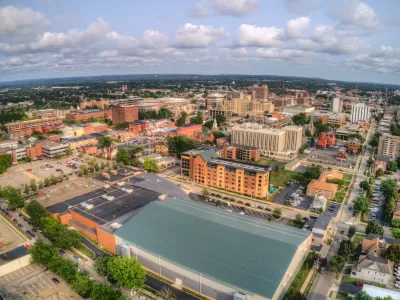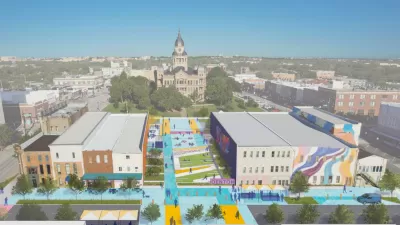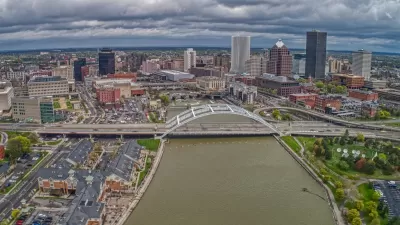The federal economic development program has brought over $100 billion in private investment to revitalize struggling communities.

In an opinion piece for Governing, Steven G. Glickman and Jonathan Tower argue for the expansion of the federal Opportunity Zone program created by the 2017 Tax Cuts and Jobs Act.
Opportunity Zones, the authors explain, “were originally designed as an experiment to incentivize new streams of private capital investment in distressed areas, pushing overly bureaucratic decision-making from the federal government down to more nimble states, cities and individual investors in exchange for long-term investments that generate new economic activity and housing.”
Since then, Opportunity Zones were created in over 8,700 communities across the U.S., attracting more than $100 billion in private investment by 2022, all geared toward revitalizing underserved communities. The authors note that “To get it right, you have to have the right mix of community leaders, investors, entrepreneurs and developers with a shared long-term vision of the future.”
The authors support extending and expanding the program to make more communities eligible, asserting that the program could grow to become the first billion-dollar economic development initiative. “If we are really serious about the success of Opportunity Zones, Congress should include them as a permanent part of the tax code, providing the private sector with the clarity and confidence needed to achieve the true scale of impact that’s possible.”
FULL STORY: Opportunity Zones Are a Big Success. Let’s Make Them a Lot Bigger.

Alabama: Trump Terminates Settlements for Black Communities Harmed By Raw Sewage
Trump deemed the landmark civil rights agreement “illegal DEI and environmental justice policy.”

Planetizen Federal Action Tracker
A weekly monitor of how Trump’s orders and actions are impacting planners and planning in America.

How Atlanta Built 7,000 Housing Units in 3 Years
The city’s comprehensive, neighborhood-focused housing strategy focuses on identifying properties and land that can be repurposed for housing and encouraging development in underserved neighborhoods.

In Both Crashes and Crime, Public Transportation is Far Safer than Driving
Contrary to popular assumptions, public transportation has far lower crash and crime rates than automobile travel. For safer communities, improve and encourage transit travel.

Report: Zoning Reforms Should Complement Nashville’s Ambitious Transit Plan
Without reform, restrictive zoning codes will limit the impact of the city’s planned transit expansion and could exclude some of the residents who depend on transit the most.

Judge Orders Release of Frozen IRA, IIJA Funding
The decision is a victory for environmental groups who charged that freezing funds for critical infrastructure and disaster response programs caused “real and irreparable harm” to communities.
Urban Design for Planners 1: Software Tools
This six-course series explores essential urban design concepts using open source software and equips planners with the tools they need to participate fully in the urban design process.
Planning for Universal Design
Learn the tools for implementing Universal Design in planning regulations.
Jessamine County Fiscal Court
Caltrans
Institute for Housing and Urban Development Studies (IHS)
City of Grandview
Harvard GSD Executive Education
Toledo-Lucas County Plan Commissions
Salt Lake City
NYU Wagner Graduate School of Public Service





























